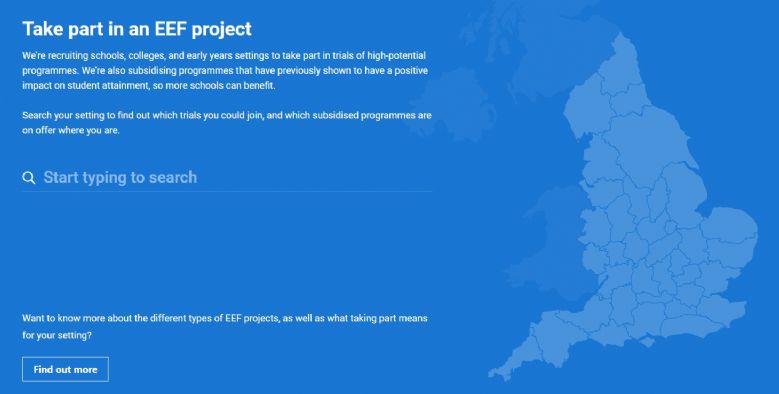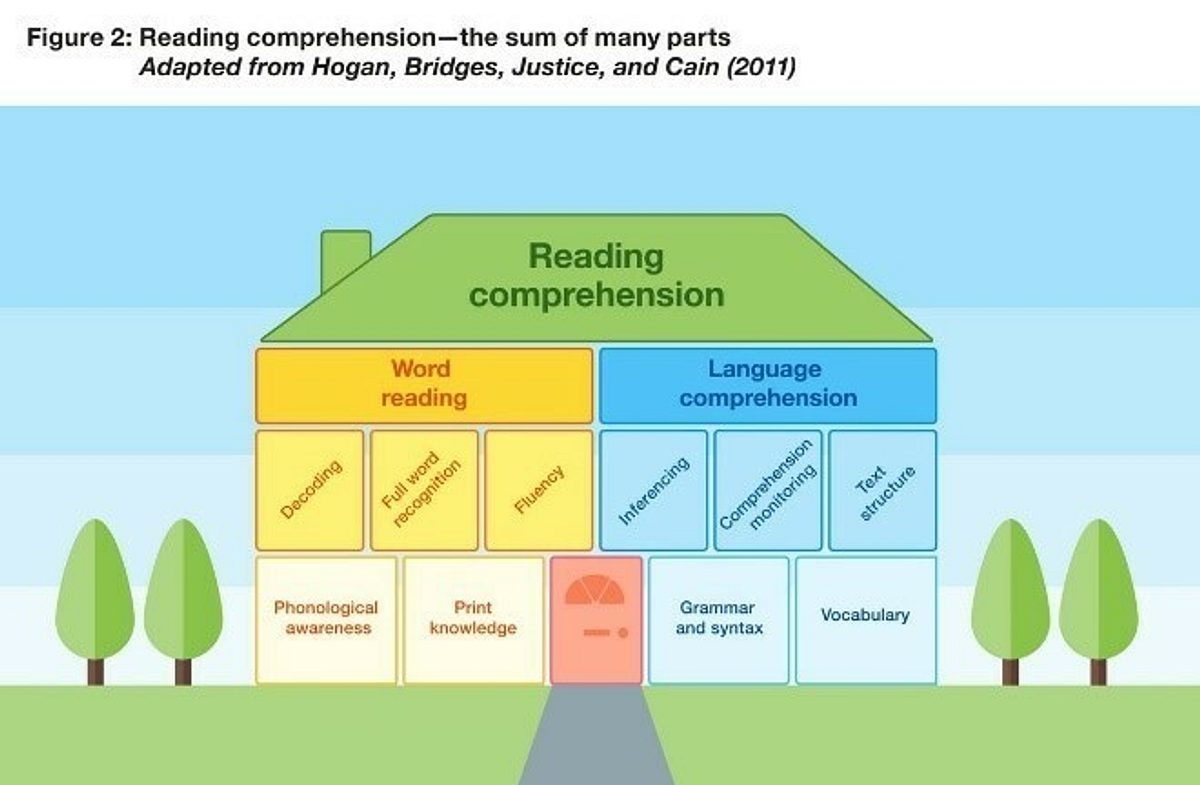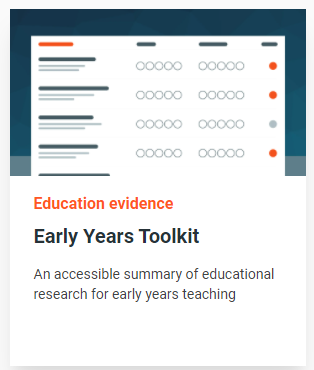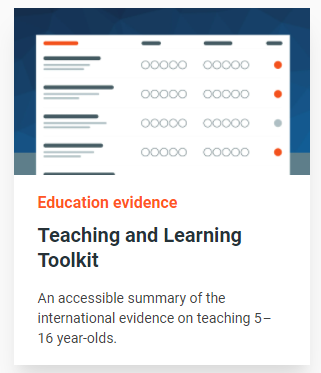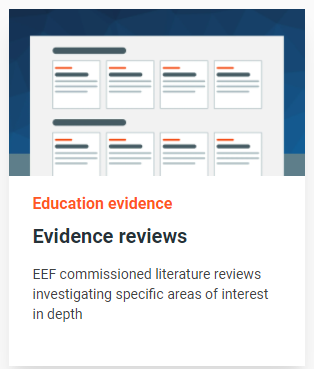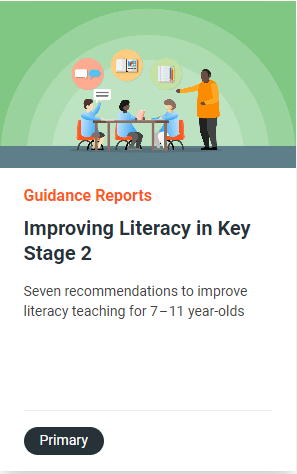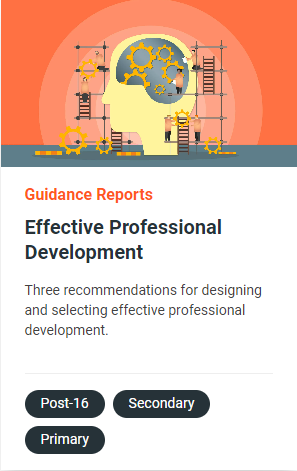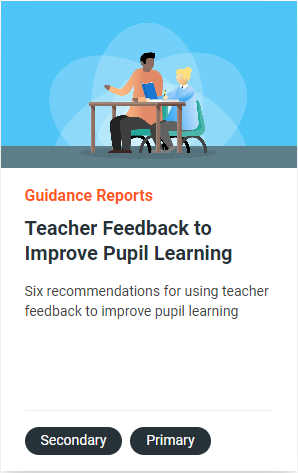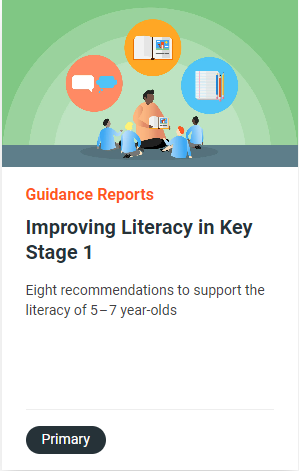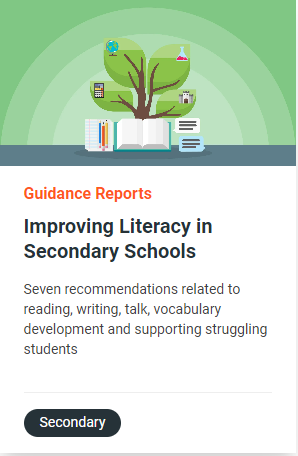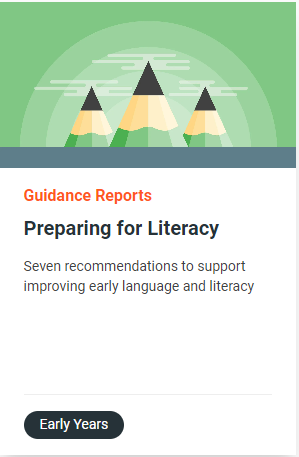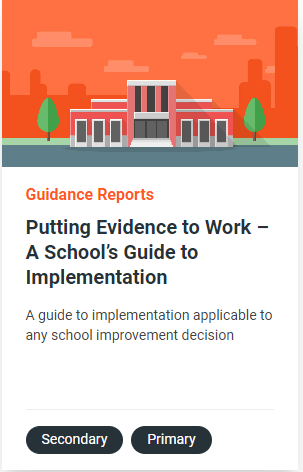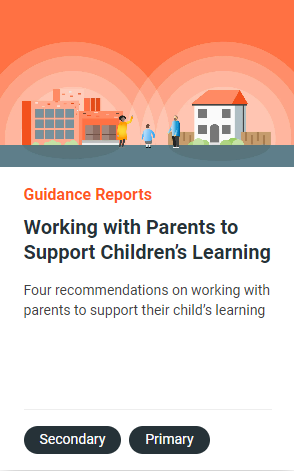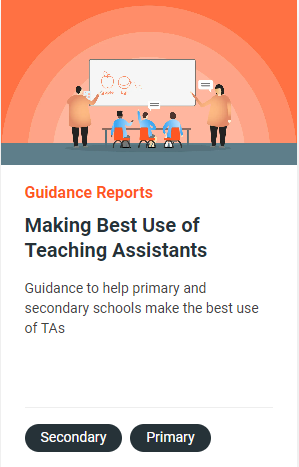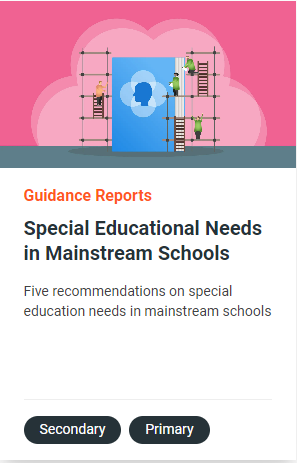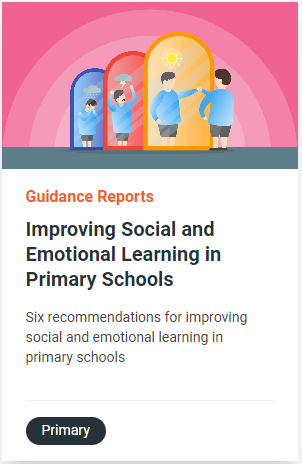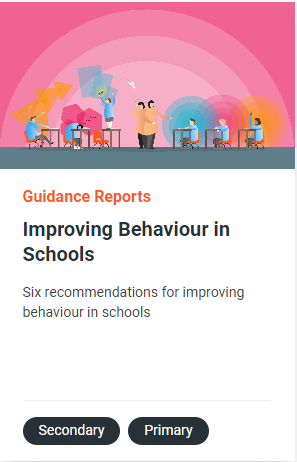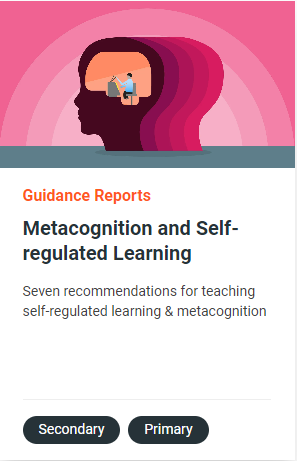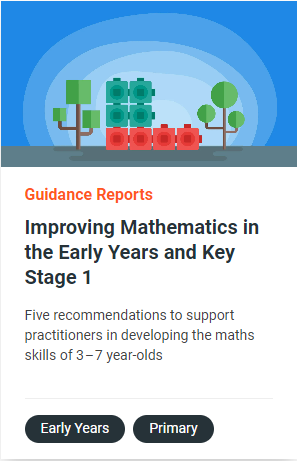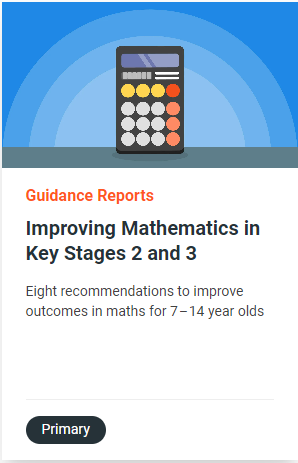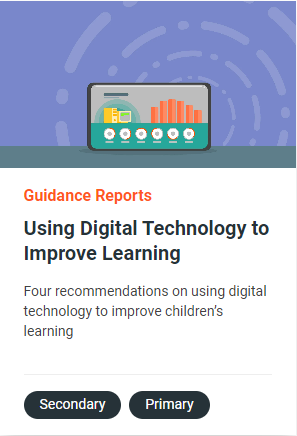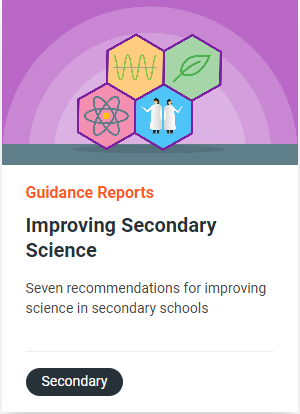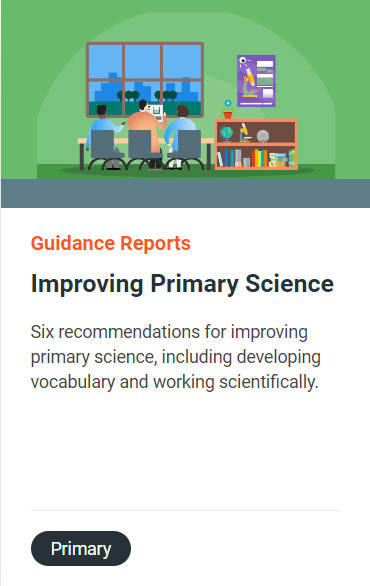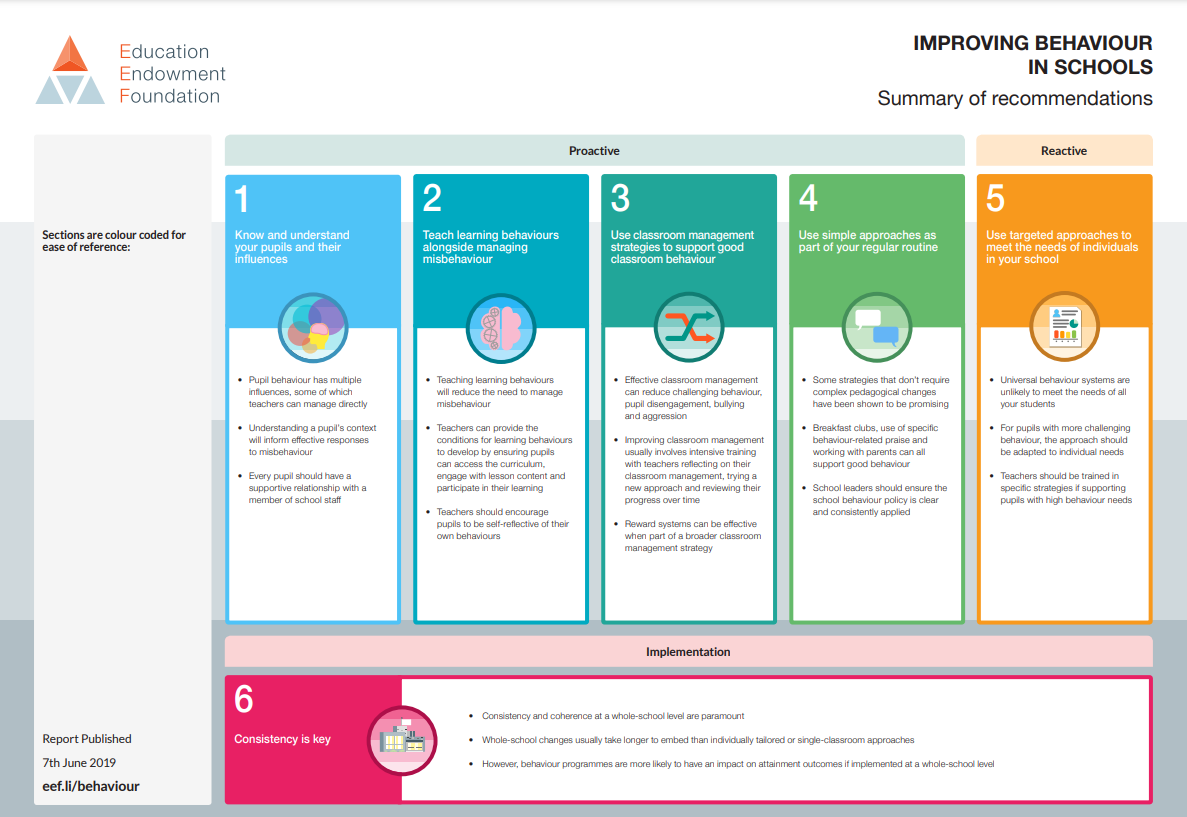Education Endowment Foundation (EEF)
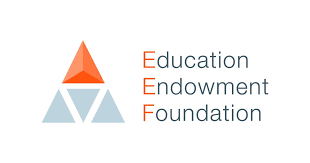
The Education Endowment Foundation (EEF) is an independent charity dedicated to breaking the link between family income and educational achievement. We provide accessible summaries of educational research to guide teachers and senior leaders on how to use your resources to improve learning outcomes.
The website houses a wealth of information including, Educational Evidence, Guidance for Teachers, Projects and Evaluation and Support for Schools.
For more information click here.
Take part in an EEF project
The EEF are recruiting settings to take part in a variety of new EEF-funded projects, across a range of phases and subject areas.
Register now to take part in an EEF trial, or to deliver a promising programme at a subsidised rate.
Putting evidence to work in your setting
Interested in getting involved in an EEF project, but want to know more before you sign up?
Join an upcoming webinar with your local research school on putting evidence to use in your setting.
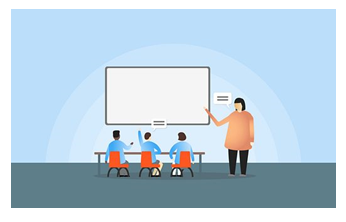
Evidence into Action
Evidence into Action is a podcast from the Education Endowment Foundation (EEF). This podcast welcomes experts in the field of education – fantastic researchers with important things to say, alongside a wealth of brilliant teachers and school leaders. Our mission is straightforward: to tackle the most important educational topics and offer you plenty of evidence-based ideas to reflect on and, hopefully, be able to put into action.

EEF blog: The House of Reading: An Interactive Tool
Alex Reynolds is the content specialist for literacy. In this blog, she introduces a new interactive tool to support effective literacy teaching.
How evidence can support the early years sector
Evidence gives us information about how different approaches impact children's learning and development. It can help you to create great learning opportunities for all your children, particularly those from socio-economically disadvantaged backgrounds.
The role of early years practitioners is integral to building and nurturing strong learning foundations, giving each child the best start in life so that they can achieve their potential.
The EEF have published two new resources dedicated to supporting high quality early years practice: the updated Early Years Toolkit and the Early Years Evidence Store. Click on the images below for more information:
Toolkits
The Toolkits are designed to support teachers and school leaders who are making decisions about how to improve learning outcomes. They are based on real life data about what has happened when particular approaches have been used in schools before.
The Toolkits do not make definitive claims as to what will work to improve outcomes in a given school. Rather they provide high quality information about what is likely to be beneficial based on existing evidence – ‘best bets’ for what might work in your own context.
Because the Toolkits do not provide definitive answers, they should not be used in isolation. Your professional judgement and expertise is also needed to move from the information in the Toolkit to an evidence-informed decision about what will work best in your school. Click on each one for more.
Reviews
The EEF commissions literature reviews to investigate specific areas of interest in greater depth. They give us a solid basis on which to begin our work of identifying, testing, and then scaling those approaches and programmes with the best chance of making a real and enduring difference.
There are too many to list from Literacy, Maths and Science, Assessment, Learning Behaviours, Leadership, CPD, Remote Learning and more....
Guidance Reports
The EEF has published 17 guidance reports so far, offering practical, evidence-based advice to schools on a wide range of topics. They include clear recommendations, and are accompanied by tools, resources, and training to support their implementation. The most recent reports include:
EEF Regional Support
EEF’s team of Regional Leads provide local support to develop partnerships with our network of 38 Research Schools and Associate Research Schools. Research Schools share their knowledge and expertise on effective teaching and provide evidence-informed support and training to bring research closer to schools in their area.
Archive
High quality teaching: The 'five-a- day' principle
Supporting every pupil to succeed academically is a significant challenge for teachers and teaching assistants. The EEF’s research evidence suggests there is a set of 5 core practices that can support all pupils, including those with SEND, to do just that. As a teacher, SENDCO, senior leader or teaching assistant looking to build these practices into classroom practice, there are some EEF resources that can support. As a first step, for an overview of what each of the Five-a-day entails, watch this 3-minute video:
New EEF guide: Making a difference with effective tutoring
The Education Endowment Foundation (EEF) has published a new guide to support school leaders to implement tutoring effectively.
EEF’s Teaching and Learning Toolkit shows that if tuition is high-quality and aligned to classroom teaching, pupils can make up to five months additional progress. It can be particularly effective for socio-economically disadvantaged pupils too.
Schools have gone above and beyond to implement tuition successfully against the backdrop of disruption to staffing, budget constraints, logistics planning and pupil attendance. EEF’s guide, which is based on the best available evidence, offers educators practical advice to support these efforts and make tutoring have a positive impact in their setting.
It focuses on three central principles:
- Selecting pupils and scheduling sessions effectively: How to identity those pupils who will benefit the most, as well as how frequent sessions should be and when they should take place.
- Aligning tutoring with curriculum and assessment: How to align tutoring with a pupils’ current curriculum, so that they can reinforce learning from tuition sessions in their classroom practice.
- Creating a sustainable tutoring model: How to monitor and evaluate the impact of tutoring so schools can track progress and refine their approach over time.
Improving Behaviour in Schools - Six Recommendations
